Author
Andy Cagle
Share
Supply chain finance is an exciting option for businesses looking to optimize working capital or extend payment terms, without impacting their Suppliers’ cash flow. As with most things in the world of finance, supply chain finance has developed its own, often divergent, terminology that is widely unknown outside of the industry. While there is a bit of a learning curve, we’re here to help by defining the most common and essential terms you are likely to encounter while exploring supply chain finance.
A Guide to Supply Chain Finance Terms
First things first: What is Supply Chain Finance?
Supply Chain Finance
AKA: Supplier Finance, Reverse Factoring
A set of technology-driven financing solutions that benefit both Buyers and Suppliers. Traditionally the Buyer extends payment terms with their Suppliers while simultaneously offering an early payment solution to those Suppliers via a 3rd-party Funder. As a result, the Buyer is able to optimize their working capital while the Supplier improves their cash flow, thus improving supply chain resiliency and minimizing risk.
Account Payable (AP, Payables)
Money owed by a Buyer to its Suppliers and is shown as a liability on the Buyer’s balance sheet.
Account Receivable (AR, Receivables)
Money owed to a Supplier by its Buyer (obligor) for goods or services rendered. Shown as an asset on the Supplier’s balance sheet.
Advance / Early Payment
A payment made before the due date of the invoice.
Balance Sheet
Official statement of financial health that includes assets and liabilities. It also details expenses and income over time. The balance sheet is used in determining the probability of financial risk in doing business with or lending to a company.
Buyer
A company that purchases goods or services from Suppliers; the Supplier’s customer. E.g., a production plant (the Buyer) buys supplies from a raw materials Supplier.
Cash Conversion Cycle
The amount of time it takes for a business to convert inventory and other assets into cash flow from sales. Calculated by: (DSO) + (DIO) – (DPO).
DIO (Days Inventory Outstanding)
The average number of days that a company keeps possession of inventory before it is sold to customers.
DPO (Days Payable Outstanding)
The amount of time that a company takes to pay bills and invoices to outside vendors, Suppliers, etc.
DSO (Days Sales Outstanding)
The amount of time that accounts receivable remain outstanding before collecting on the invoice.
Dynamic Discounting
A sliding discount structure that allows Suppliers an option to receive payment from Buyers in advance of the invoice date. The earlier the payment, the more the invoice total is discounted. Unlike Supply Chain Finance, capital is generally provided directly from the balance sheet of the Buyer instead of a 3rd-party funder.
Early Payment Program
A standardized program where a Buyer offers Suppliers a discount on invoices in exchange for early payment. These programs are typically deployed through an online platform set up by the Funder.
Extended Payment Terms
Lengthens the amount of time before payment is due, EG from Net 30 to Net 90.
Funder
The source of capital that advances funds in a supply chain finance program. Funders can be traditional lenders like banks, or alternative lenders like Fintechs.
Invoice
Legal documentation providing evidence of goods/services rendered, the amount due for those goods or services, the parties involved in the transaction, and the payment terms of the transaction.
Invoice Discount / Fee
The percentage taken from the total amount of the invoice in order to receive early payment. This is often confused because of the duality; an invoice discount is actually a ‘fee’ to the Supplier because they are accepting a smaller payment in order to get paid faster than the due date. It is a true discount to the Buyer because they are in effect paying less for the same goods/services provided.
Know Your Customer (KYC)
A banking term that refers to a customer verification process intended to mitigate fraud in the financial system.LiquidityA measure of available access to working capital/cash assets.NovationIn finance, specifically, supply chain finance, it refers to when existing contracts are replaced to add a third-party between the existing relationships. The structure of the original contract can change in many ways, including the transfer of rights, swapping responsible parties, etc. In any case, all involved parties agree to the contractual adjustments made during novation prior to engaging in an Early Payment Program.
Obligor
A person/business who is contractually bound to pay another person or entity, also known as a debtor in finance.
Off-Balance Sheet
Not logged as a traditional liability on the Balance Sheet the way debt normally incurred from a loan or other line of credit would be.
Payables Finance
A supply chain finance method where a Buyer uses a Funder and Early Payment Program to supply capital for outgoing Supplier accounts payable. In turn, if the Supplier accepts the discount for early payment, the Buyer then owes less for products/services rendered. A synonym for supply chain finance.
Payment Terms
The conditions of a sale. Most commonly refers to the time until an invoice is due, such as Net 60.
Platform
A technology-based solution, usually in the form of websites and applications, that are accessible through some sort of user interface. LSQ FastTrack is our Supply Chain Finance Platform.
Reverse Factoring
Another term for Payables Finance.
Supplier
A company that sells goods or services to a Buyer. In supply chain finance, Suppliers are enrolled in an early payment program to receive an advance payment on their invoices to specific Buyers.
Supplier Portal / Vendor Portal
A secure online interface that connects Buyers, Suppliers, and the Funder in order for the Supplier to request early payment. See Platform.
Supply Chain Finance Marketplace
An auction-style platform where certain supply chain finance programs invite 3rd party Funders to bid to purchase invoices for early payment. This results in uncertain early payment costs for Suppliers, unlike non-marketplace platforms, like LSQ, that use fixed rates.
Trade Finance
Trade finance refers to financial solutions that bridge the funding gap between paying Suppliers and receiving Buyer payments during international trade. These payment gaps are caused when a Supplier (or exporter) requires the Buyer (an importer) to prepay for goods shipped, the Buyer may wish to reduce risk by requiring proof from the Supplier that the goods have shipped.
About LSQ
LSQ helps businesses better manage their cash flow to make the most of whatever they’ve earned. Offering invoice financing and supply chain finance solutions, LSQ provides clients with a simple, secure, and honest funding experience. LSQ blends human insights with the analytical power of technology to develop products that give customers the means to accelerate the flow of business. LSQ, headquartered in Orlando, Florida, has helped 1,000s of companies access $25 billion in its 20+ years in business. Learn more about our solutions at www.lsq.com/
Stay in the loop





